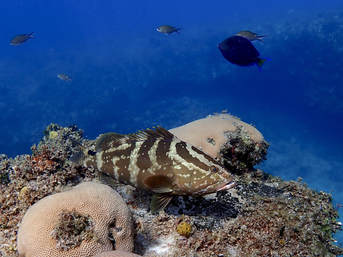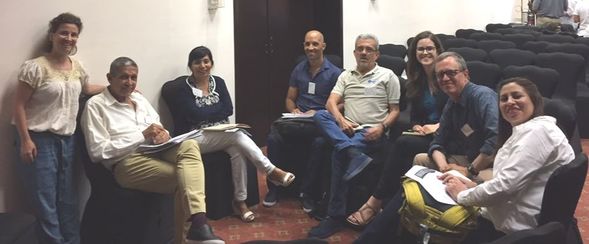FIsheries
 Photo credit: Noel López
Photo credit: Noel López
Cuba has not been immune from the impacts of overfishing seen elsewhere in the region, including stock depletion and adverse impacts on population dynamics in coral reef ecosystems. Ongoing research is helping to better characterize important nearshore fish and invertebrate assemblages and better inform fisheries management policies. In addition, ecotoxicological research is being conducted to help assess the impact of land-based pollution on marine fish at an individual, community and ecosystem level. Such information is important in addressing land use policies and practices. Ongoing research to investigate fish habitat use is helping to better understand critical habitat needs of important fishes throughout the life cycle, including habitat connectivity and dispersal patterns, providing critical information needed to identify essential habitats that need protection. Adoption of sustainable and responsible aquaculture techniques and stocking protocol is needed to provide juvenile fishes and invertebrates for restocking and for conservation hatcheries, that when integrated with sound fisheries management can help replenish depleted fishery stocks and help restore endangered and keystone species.

